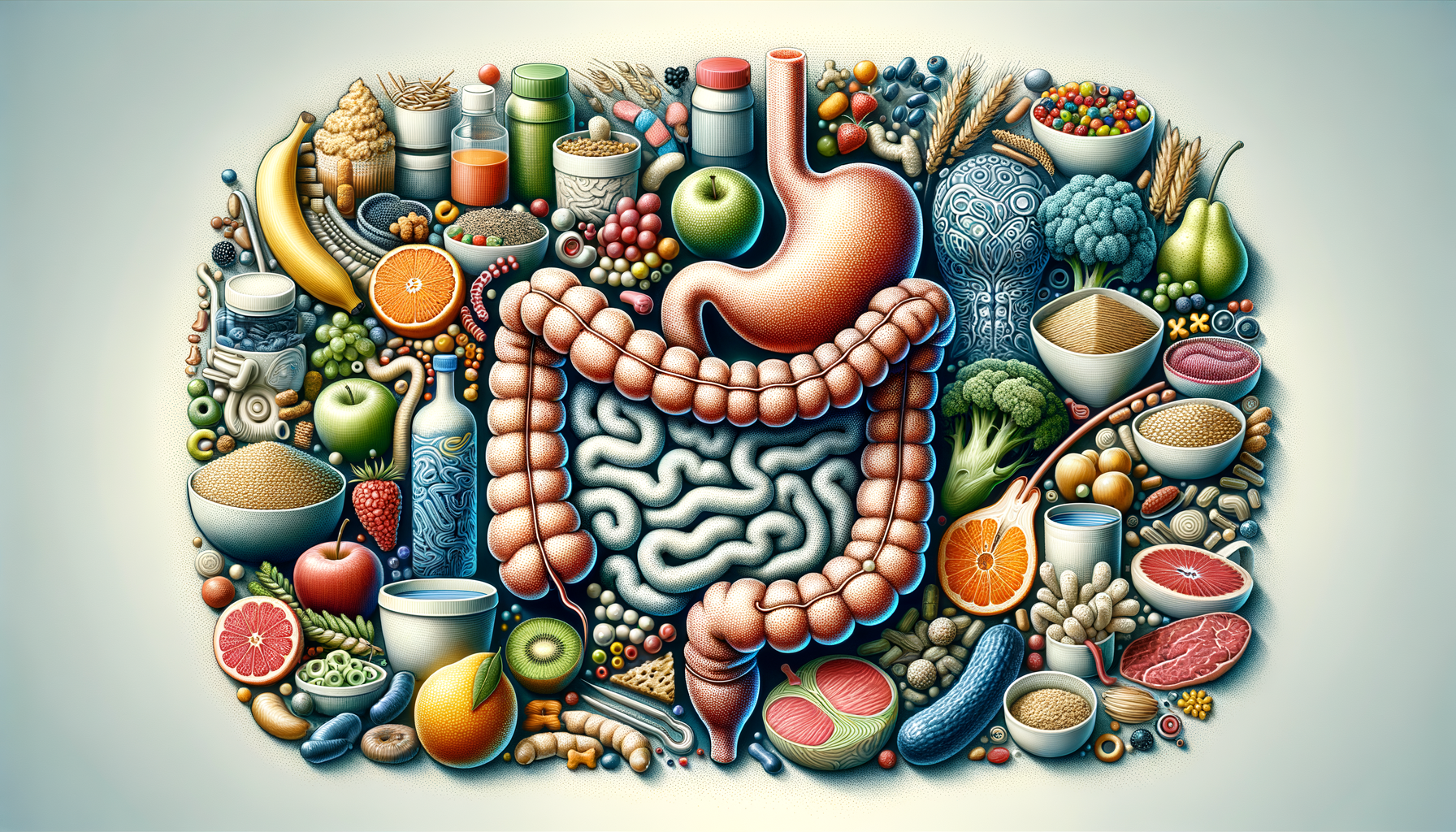Understanding the Gut Microbiome
The gut microbiome is a complex ecosystem residing within your digestive tract, home to trillions of microorganisms, including bacteria, viruses, fungi, and other microbes. These tiny inhabitants play a pivotal role in your overall health, influencing everything from digestion and nutrient absorption to immune function and mental health. The diversity and balance of these microbial communities are crucial for maintaining a healthy gut.
Research has shown that a diverse microbiome is associated with better health outcomes, while a lack of diversity can be linked to various health issues, including obesity, diabetes, and inflammatory bowel diseases. The balance of good and bad bacteria is essential to prevent the overgrowth of harmful pathogens that can lead to digestive disturbances and other health problems.
Several factors influence the composition of your gut microbiome, including diet, lifestyle, genetics, and environmental exposures. Understanding these factors and their impact on your gut health can empower you to make informed choices that support a thriving microbiome.
The Role of Diet in Gut Health
Your diet is one of the most significant factors affecting your gut microbiome. Consuming a variety of nutrient-dense foods can promote a diverse and balanced microbial community. Fiber-rich foods, in particular, serve as prebiotics, providing nourishment for beneficial bacteria. Whole grains, fruits, vegetables, legumes, nuts, and seeds are excellent sources of dietary fiber that support gut health.
In contrast, diets high in processed foods, sugars, and unhealthy fats can disrupt the balance of your microbiome, leading to the proliferation of harmful bacteria. Reducing the intake of these foods and focusing on whole, unprocessed options can help restore balance.
Fermented foods like yogurt, kefir, sauerkraut, kimchi, and tempeh are rich in probiotics—live beneficial bacteria that can enhance the diversity of your gut microbiome. Including these foods in your diet can help maintain a healthy gut environment and improve digestive health.
Lifestyle Factors Impacting Gut Health
Beyond diet, several lifestyle factors can influence gut health. Regular physical activity has been shown to promote a healthy microbiome by increasing microbial diversity and supporting digestive function. Aim for at least 150 minutes of moderate aerobic exercise per week to reap these benefits.
Stress management is also crucial, as chronic stress can negatively affect your gut health by altering the composition of your microbiome and increasing intestinal permeability. Incorporating stress-reducing practices such as mindfulness, meditation, yoga, or deep breathing exercises can help mitigate these effects.
Sleep is another important factor, as poor sleep quality and irregular sleep patterns can disrupt the balance of your gut microbiome. Prioritize getting 7-9 hours of quality sleep each night to support overall health and well-being.
Signs of an Unhealthy Gut
Recognizing the signs of an unhealthy gut can help you take proactive steps to restore balance. Common symptoms include digestive issues such as bloating, gas, diarrhea, constipation, and heartburn. These symptoms may indicate an imbalance in your gut microbiome or other underlying health issues.
Other signs of an unhealthy gut may include food intolerances, skin conditions like eczema, frequent infections, and unexplained fatigue. These symptoms can result from inflammation or an impaired immune response linked to gut health.
If you experience persistent symptoms, it’s important to consult a healthcare professional to determine the underlying cause and develop an appropriate treatment plan. Addressing gut health through dietary and lifestyle changes can often alleviate these symptoms and improve overall well-being.
Practical Tips for Improving Gut Health
Improving gut health doesn’t require drastic measures; small, consistent changes can make a significant difference. Here are some practical tips to support a healthy gut:
- Incorporate a variety of fiber-rich foods into your diet to nourish beneficial bacteria.
- Include fermented foods regularly to boost probiotic intake and enhance microbial diversity.
- Stay hydrated by drinking plenty of water throughout the day to support digestion.
- Engage in regular physical activity to promote a healthy microbiome and improve digestive function.
- Practice stress management techniques to reduce the impact of stress on your gut health.
- Prioritize quality sleep to support overall health and maintain a balanced microbiome.
- Consider a high-quality probiotic supplement if needed, but focus on dietary sources first.
By incorporating these practices into your daily routine, you can foster a healthy gut environment that supports overall health and well-being. Remember, consistency is key, and small changes can lead to significant improvements over time.



Leave a Reply